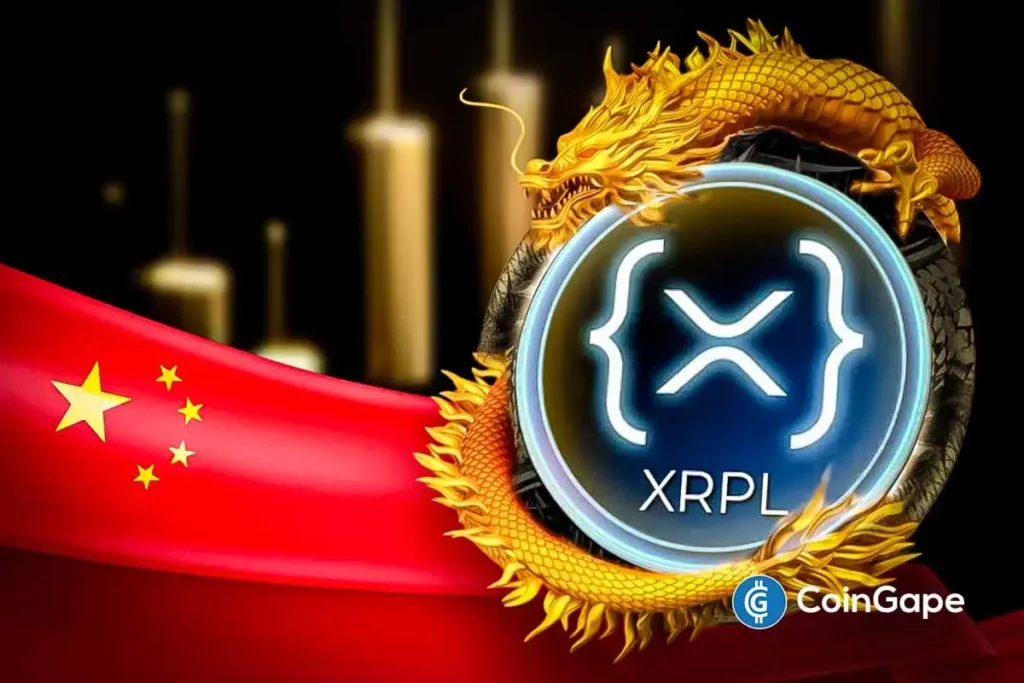Ripple and Linklogis: Transforming China’s Supply Chain Finance with the XRP Ledger
In a landmark development for blockchain technology within global industries, Ripple’s XRP Ledger has been selected by Linklogis, a leading Chinese supply chain fintech provider, to enhance its global digital supply chain finance platform. This partnership signifies Ripple’s expanding footprint across Asia and highlights the growing acceptance of blockchain technology in traditional finance sectors.
Empowering Supply Chain Finance
The collaboration between Linklogis and the XRP Ledger will see the fintech giant integrate its finance applications directly onto the ledger’s mainnet. This innovative move will facilitate tokenized invoices and cross-border transactions linked to actual trade flows, allowing businesses to enhance their operations significantly. By leveraging the decentralized structure of the XRP Ledger, tokenized assets tied to trade receivables will enjoy increased liquidity, faster circulation, and enhanced credibility within China’s expansive trade ecosystem.
Strategic Expansion Plans
Linklogis has ambitious plans to broaden this partnership with Ripple further, which may include exploring the development of stablecoins, enabling smart contracts for trading supply chain assets, and integrating AI with blockchain for improved trade finance scenarios. As the XRP Ledger emerges as a prominent global settlement layer for stablecoins, this collaboration is positioned to adapt to the rapidly changing landscape of digital finance, solidifying Ripple’s reputation on a worldwide scale.
A Dominant Force in Supply Chain Finance
Linklogis already stands tall in the arena of supply chain finance, managing RMB 20.7 billion in cross-border assets in 2024 and servicing clients in 27 countries. The integration of the XRP Ledger into its operations showcases not only the evolution of blockchain technology but also the willingness of Chinese enterprises to adopt decentralized systems. By using XRPL technology, Linklogis aims to enhance transparency in trade financing, providing businesses with new ways to access essential funds and streamlining financial processes.
Ripple’s Growing Influence in Asia
This partnership is another achievement in Ripple’s strategic wins across the Asian market. Recent collaborations, such as South Korea’s BDACS offering institutional custody services for XRP, and SBI Holdings planning to introduce Ripple’s stablecoin, RLUSD, on its trading platform, further illustrate Ripple’s active role in bridging blockchain technology with traditional finance. The integration of yen-backed tokens is also on the agenda, representing a significant step toward mainstream adoption of cryptocurrencies in conventional financial systems.
Bridging Traditional and Digital Finance
The alliance with Linklogis comes at a time when trillions of dollars in yearly trade in China are in need of efficient financing solutions. This partnership is poised to contribute significantly to Ripple’s expansion in the region by offering modernized systems that can address the complexities of trade finance. Furthermore, Ripple’s ongoing collaboration with various organizations is set to foster technological innovation and support various blockchain initiatives, including grants for projects on the XRP Ledger. These ongoing advancements underscore Ripple’s commitment to transforming finance through blockchain solutions.
Conclusion: A New Era in Supply Chain Finance
The partnership between Ripple and Linklogis heralds a new era for supply chain finance in China. By integrating the XRP Ledger into its operations, Linklogis is set to redefine financial processes within the enormous supply chain industry. With ambitious plans for future development and continued growth across Asia, Ripple is not only strengthening its foothold but also paving the way for the broader adoption of blockchain and decentralized finance solutions in traditional sectors. As this collaboration takes shape, industry stakeholders should keep a keen eye on the developments, as they are likely to present transformative opportunities in the global supply chain landscape.


